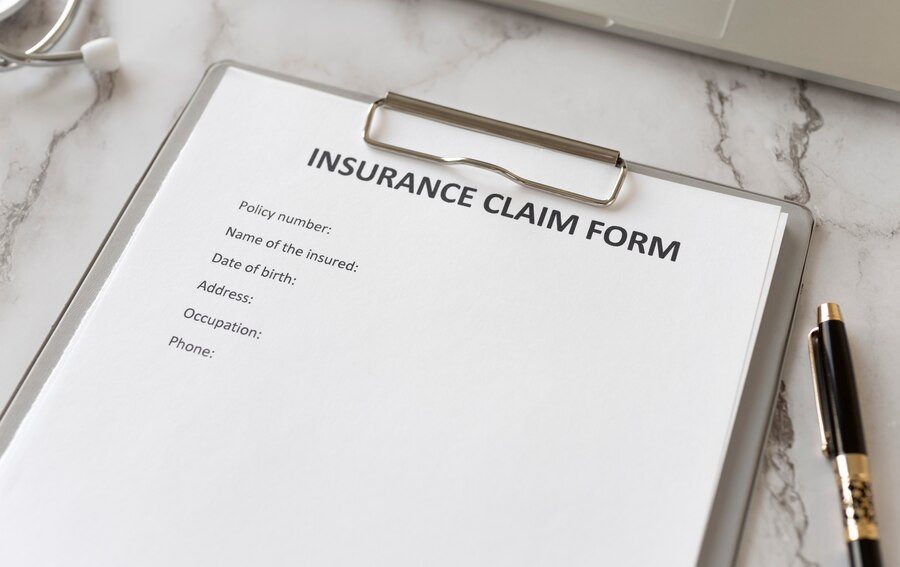Behind The Delays: Understanding Factors Behind Delayed Insurance Claims Settlements

The “average spending per capita in the Motor Vehicle Insurance market is expected to reach US$3.92k in 2024.” The data shows how car owners in the USA today are more inclined to have an auto insurance policy (source). However, delay in insurance claim settlements still remains a concern for private and commercial vehicle owners.
On the other hand, the Bureau of Transportation Statistics says that in the USA, a car accident happens every 13 minutes. Further, vehicle accidents are one of the major reasons for death in the USA. So, it is evident that the accident rate for commercial and private vehicles has not gone down despite the incorporation of tracking software and other advanced technologies.
So, insuring your car with the right insurance provider is a necessity to recoup some of your losses. For a commercial vehicle owner, especially an insurance policy can be a form of financial aid to recover from the losses caused by the disruption in business operations.
However, insurance companies don’t always pay promptly. While the law states that simple claims should be settled in 30 days, insurance companies often take a longer time for the disbursement of the claim.What causes delays in vehicle insurance claim settlements? How to overcome it? Here is a complete guide for you.
What’s The Time Limit For Insurance Claim Settlements?

According to law and standard ethics, the limit of insurance claim settlements for vehicle accidents should be within 30 days. This timeframe includes investigating the occurrence, making a report, and disbursing the claim. However, sometimes, the complexity of the policy and claim or inadequate measures of the insurance company can cause a delay in insurance claim settlements.
In such cases, you will need legal assistance to speed up the process and ensure that you get the right compensation against your claim.
Further, suppose your vehicle is damaged due to some natural disaster, and your insurance company takes longer than expected to settle the claim. In that case, you can seek assistance from The Federal Emergency Management Agency of the USA or FEMA.
A fact sheet issued by FEMA on the 14th of November 2023 said,
“If a decision on your insurance settlement for disaster-caused damage has been delayed longer than 30 days from the time you filed the claim, you may be eligible for an insurance advance payment from FEMA. These funds are considered a loan and must be repaid to FEMA once you receive your settlement from your insurance company.
While FEMA cannot provide assistance for disaster-caused needs covered by insurance benefits, FEMA may help meet an applicant’s immediate needs when insurance benefits are delayed.”
However, you need to consider the monetary assistance received from FEMA as a loan. You will have to repay it once your insurance claim is settled.
What Factors Can Lengthen An Insurance Claim Settlement?
Insurance companies often take longer than expected in assessing the accident and reviewing the policy. As a policyholder, it is not the ideal situation for you. Having said that, insurance companies also have to conduct multiple rounds of checks to protect them from fraudulence. There are also risks of overpaying the claims in the absence of proper assessment.
Are there other reasons why an insurance company can cause delays in disbursing the claim? Let’s find out!
Did You Know?
Semi-trailer trucks are more prone to dead accidents than other types of trucks. These trucks do not have a front axle, but they combine the features of a truck and a trailer.According to the Federal Motor Carrier Safety Administration (FMCSA), semi-trailer trucks were responsible for 54% of the fatal collisions with large trucks in 2021.
Investigating Submitted Claims
Insurance companies do not trust in word-of-mouth versions for insurance claims settlements. They will investigate your claims, review forensic evidence for the accident that occurred, collect other necessary information and witnesses, and even consult experts.
In modern commercial vehicles, the vehicle tracking system and the footage captured in the dashcam can be essential means of assessing the incident that occurred. These software and devices also help the insurance company to know whether you are at fault or if the accident is caused by someone else.
Reviewing Your Policy
Commercial vehicles are tied to several insurance policies to safeguard both the company and its drivers. So, interpreting the policy applicable in a particular case and issuing proper compensation can take longer than expected for an insurance company. Further, there will be a lot of documentation work, causing delays in insurance claims settlements.
In this context, you must be aware of the various types of insurance claims.
Damage Evaluation

If you are at fault for an accident that occurred, you will be eligible to make liability insurance claims. This policy will cover the following expenses.
- The repair of the damaged vehicle and property
- Medical bills of the other driver and passengers
It is the bare minimum for an auto insurance claim and almost all states in the USA have made it mandatory to have liability insurance.
Comprehensive Coverage
Comprehensive coverage helps you to get compensation for any vehicle damage not related to accidents. For example, there can be theft or any damage caused by disasters.
Collision Coverage
Under collision coverage, you can make claims for any damage caused to your vehicle. You are eligible to make this claim even if you are at fault for any accident.
If your vehicle is fully damaged in an accident, you can claim collision coverage equivalent to the value of your car.
Uninsured Motorist Coverage
When you are involved in an accident where the driver does not have an insurance policy, or they are at fault, you will be eligible for uninsured motorist coverage. It is also applicable to a hit-and-run case.
Personal Injury Protection
Personal injury protection insurance is costly for the policyholder. It covers the cost caused by the loss of work for the driver and passengers.
Gap Insurance
Gap insurance is applicable when your car is stolen, or the repair cost of the car is more than its value. In such cases, the insurance company will bear the cost difference (or gap) between the cost of your existing car and the value of a new car.
Rental Car Insurance
When you buy an auto insurance policy, you will usually get rental car insurance as an add-on.
Suppose there is severe damage to your car, and it has been lying in the repair center for quite some time. In this case, you are eligible to get the expenses for using a rental car.
Stacked Coverage
Stacked coverage helps a driver maximize their payout. However, it is only applicable to a driver who has multiple policies. They can claim compensation for the overlapping policies.
Pet Injury Coverage
It will bear the expenses for the treatment of your pet insured in the accident.
New Car Replacement
A standard auto insurance policy does not usually come with a new car replacement benefit. You will need to procure this one as an add-on.
You can make the most of this policy when your car is stolen, or the damage to it is beyond repairs. However, the coverage of the policy will be of the same value as the value of a vehicle of the same make and model.
Damage Evaluation
Damage evaluation involves evaluating the nature and severity of the damage. The damage evaluation for a vehicle happens under the supervision of an expert to determine the actual cost of the damage.
Contested Claims
Despite having an insurance cover, things don’t always go your way. The insurance company may dispute your claim for the following reasons.
- Insufficient evidence to support your claim
- A lapse in coverage
- Disputed claims
You may need to file a lawsuit to prove the validity of your claim. The legal process can delay the insurance claims settlements. Further, there are often complexities in the policy, causing a delay.
What Can You Do To Speed Up The Claims Settlement Process?

Having your claim settlement delayed is not the end of the road. As a business owner, you are entitled to a speedy payout when insurance companies delay paying valid claims. Having a personal injury lawyer at your side significantly lightens the burden and improves your chances of a speedy payout.
Here’s what to do if your insurance claim settlement takes longer than it should.
Document Everything
Insurance claims processes are a matter of technicality. As such, any document you have about the claim may help speed up the settlement process. This includes everything from your communications with the insurer to any supporting evidence that may strengthen your case.
Review The Insurance Policy
Like all contracts, insurance policies have detailed terms and conditions that must be adhered to by both parties.
Review your policy to know the coverage, timeline, and insurer obligations to avoid delaying the settlement. These details are also crucial for contesting your claim.
Seek Legal Representation
Consult an experienced personal injury attorney to negotiate with the insurer and provide effective guidance.
Stay Informed On What Goes On When Making An Insurance Claim

Review your policy and keep relevant supporting evidence to support your claim. Seeking legal representation from an experienced personal injury attorney can also help speed up the negotiation process.
Final Words
Improper documentation, a lengthy review and assessment period, and a lack of evidence can delay insurance claim settlements. Further, the complexities in the policy can stretch the process of claim disbursement.
However, with the assistance of a personal injury attorney, you can speed up the process and get the right coverage for the damage caused when car insurance companies delay the disbursement.
What is your take on the delay in insurance claims settlements? Do you know of other ways of overcoming it? Don’t forget to share your tips with us!


























Leave A Reply